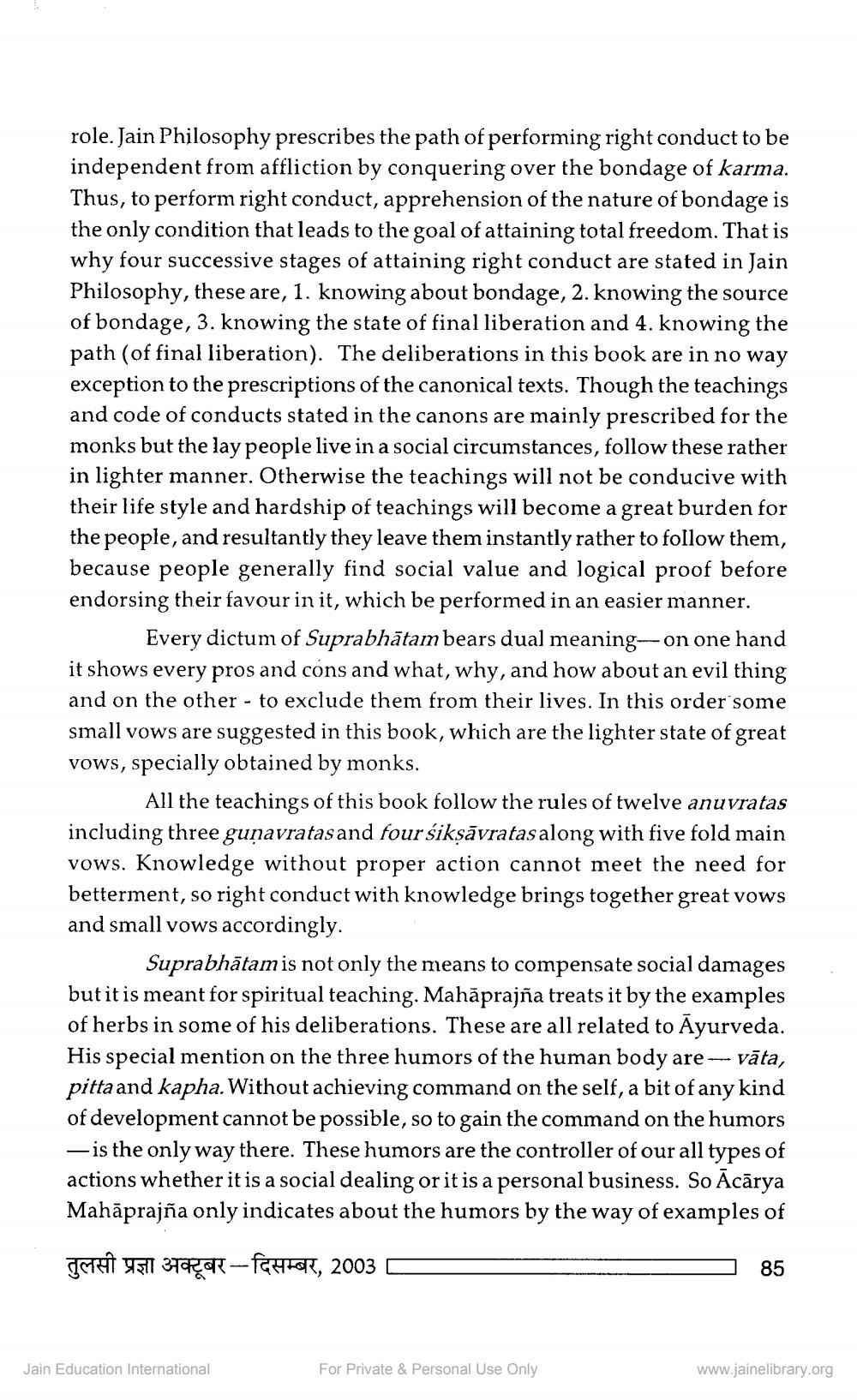________________
role. Jain Philosophy prescribes the path of performing right conduct to be independent from affliction by conquering over the bondage of karma. Thus, to perform right conduct, apprehension of the nature of bondage is the only condition that leads to the goal of attaining total freedom. That is why four successive stages of attaining right conduct are stated in Jain Philosophy, these are, 1. knowing about bondage, 2. knowing the source of bondage, 3. knowing the state of final liberation and 4. knowing the path (of final liberation). The deliberations in this book are in no way exception to the prescriptions of the canonical texts. Though the teachings and code of conducts stated in the canons are mainly prescribed for the monks but the lay people live in a social circumstances, follow these rather in lighter manner. Otherwise the teachings will not be conducive with their life style and hardship of teachings will become a great burden for the people, and resultantly they leave them instantly rather to follow them, because people generally find social value and logical proof before endorsing their favour in it, which be performed in an easier manner.
Every dictum of Suprabhātam bears dual meaning.-- on one hand it shows every pros and cons and what, why, and how about an evil thing and on the other - to exclude them from their lives. In this order some small vows are suggested in this book, which are the lighter state of great vows, specially obtained by monks.
All the teachings of this book follow the rules of twelve anuvratas including three gunavratasand four sikşāvratas along with five fold main vows. Knowledge without proper action cannot meet the need for betterment, so right conduct with knowledge brings together great vows and small vows accordingly
Suprabhātam is not only the means to compensate social damages but it is meant for spiritual teaching. Mahāprajña treats it by the examples of herbs in some of his deliberations. These are all related to Ayurveda. His special mention on the three humors of the human body are --- vāta, pitta and kapha. Without achieving command on the self, a bit of any kind of development cannot be possible, so to gain the command on the humors — is the only way there. These humors are the controller of our all types of actions whether it is a social dealing or it is a personal business. So Ācārya Mahāprajña only indicates about the humors by the way of examples of
gut 4511 3TORER -fytok, 2003 C
-
85
Jain Education International
For Private & Personal Use Only
www.jainelibrary.org




